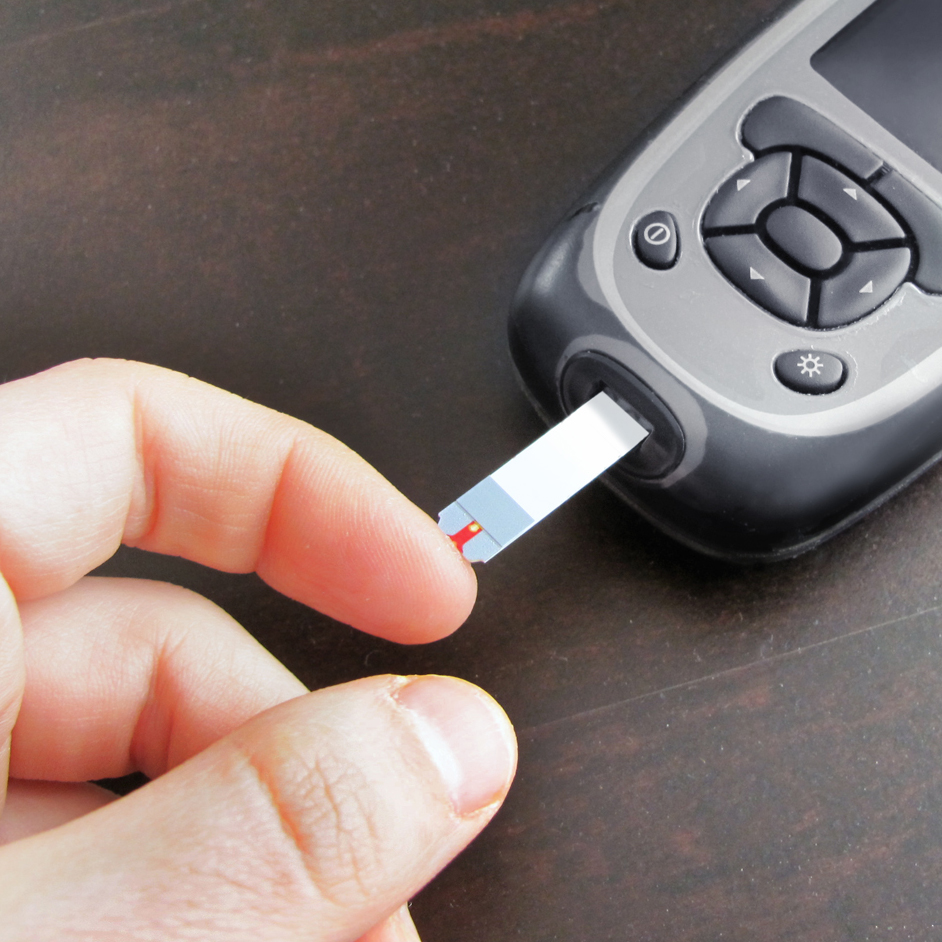Diet and nutrition Diseases and conditions Vitamins, nutrients, minerals, and supplements Diabetes Kidney diseases and conditions Cholesterol Diabetic kidney disease
October 23, 2014
Did you know that diabetes is the leading cause of kidney failure? Diabetes is a leading risk factor for kidney disease and is characterized by high levels of blood sugar. It occurs when your body does not make enough insulin, a hormone that regulates the amount of sugar in your blood, or cannot use normal amounts of insulin properly. High blood sugar levels have a damaging ripple effect in many parts of your body, causing harm to the kidneys. In honor of November being Diabetes Awareness Month, here are 6 surprising facts about diabetes and the kidneys:
- Diabetes accounts for 44% percent of new cases of kidney failure and more than 35% of people aged 20 years or older with diabetes have chronic kidney disease. Controlling blood sugar levels is a key factor in protecting the kidneys and preventing or slowing kidney disease. Controlling high blood pressure is also important.
- Prediabetes can damage the kidneys. Prediabetes refers to the beginning stage of diabetes also called the precursor stage. At this point, blood sugar levels are not normal, but not quite at the point of having diabetes. Because people with prediabetes often do not experience any physical signs of the disease, regular check-ups are very important. The A1C (A-one-C) test is an abbreviation for hemoglobin A1C. This test measures your average blood glucose over the last 3 months. An A1c test between 5.7 and 6.4 percent indicates that you may have prediabetes. When a person has prediabetes, it is still possible to reverse the symptoms by losing weight. Changing your diet and exercise habit can make a big difference when it comes to preventing type 2 diabetes and protecting the kidneys!
- Protein in the urine is the earliest sign of kidney disease in those with diabetes and prediabetes. It’s easy to detect protein in the urine, but you need to know to look for it. A urine test should be done on an annual basis in all people with diabetes, so ask your healthcare practitioner to check your urine for "albuminuria." The National Kidney Foundation also offers free kidney health screenings across the country to check for protein in the urine through its KEEP Healthy program. Find KEEP Healthy event near you!
- Diabetes injures the small blood vessels in the kidneys. When the blood vessels in the kidneys are injured, the kidneys cannot clean the blood properly and the body will retain more water and salt than it should. This can cause weight gain and ankle swelling, as well as waste materials building up in your blood. Diabetes can also damage blood vessels throughout the body, affecting not only the kidneys, but other organs and tissues such as skin, nerves, muscles, intestines and the heart. Damaged blood vessels can lead to high blood pressure and rapid hardening of the arteries, which can further harm the kidneys.
- Diabetes can damage the nerves in your body. This can cause difficulty in emptying your bladder and the pressure resulting from your full bladder can back up and injure the kidneys. Also, if urine remains in your bladder for a long time, you can develop an infection from the rapid growth of bacteria in urine that has a high sugar level.
- High triglyceride levels place you at increased risk for developing diabetes and prediabetes. Triglycerides are a form of stored fat found in the blood. A test for triglycerides is typically part of the panel you receive to test your cholesterol and other blood lipids. If after a routine blood test, your healthcare practitioner told you that you have high triglycerides, you are at an increased risk for developing diabetes and prediabetes as well as forms of heart disease. High triglycerides are also common in those with kidney disease, so this blood test should be on your radar.


















